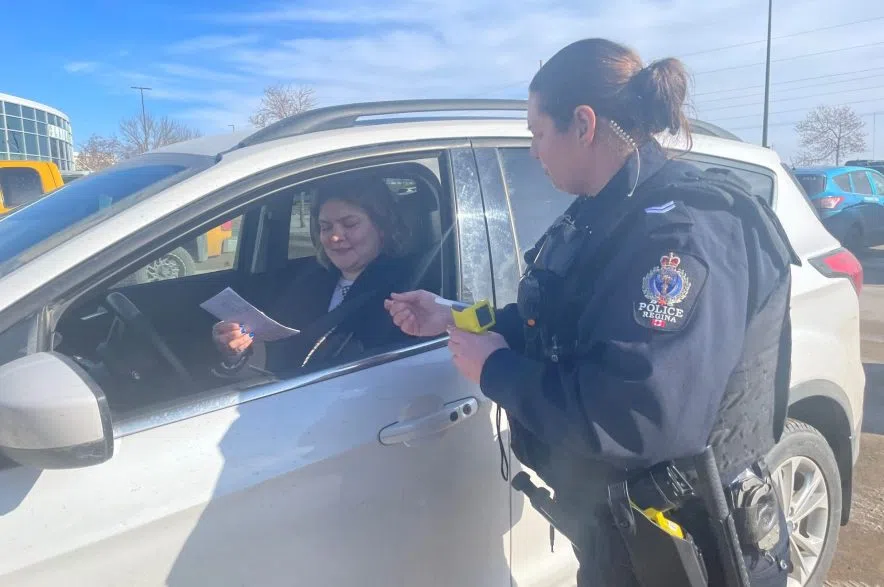Police in Regina will screen every driver pulled over for alcohol next month.
“Under federal legislation, police have the authority to demand a quick roadside breath test from any legally stopped driver using an approved screening device,” the Regina Police Service explained in a statement.
“If a police officer stops your vehicle and demands a breath sample to check for alcohol consumption before driving, you are required to take the test.”
Any driver who refused the roadside test can face charges that carry the same penalties as impaired driving, including roadside licence suspension and 30-day vehicle impoundment, the police force noted. Convictions can result in a $2,000 fine, mandatory driver education, ignition interlock and more.
Police in Regina ran a similar program in March, which saw 637 drivers screened for alcohol after they were stopped for other offences like speeding or distracted driving. Those tests led to nine arrests and six suspensions, the police force noted.
Saskatchewan RCMP officers have been screening all drivers pulled over by police since the beginning of April.
“It is estimated that over 1,500 people are killed by impaired drivers in Canada each year,” Sgt. Shannon Gordon of the Regina Police Service’s traffic safety unit said in a statement.
“Mandatory roadside alcohol screening is not targeted but is an effort to reduce these numbers and ensure a safer driving experience for everyone.”
But while the move is intended to catch impaired drivers and make the roads safer, the mandatory screenings have come under criticism from the Canadian Civil Liberties Association.
“We opposed the introduction of being able to take a mandatory breath test without reasonable suspicion when that was first introduced by Parliament,” Shakir Rahim, the director of the association’s criminal justice program, said in a previous interview.
“It’s our view that there should always be a threshold before a person is able to be searched in that manner, and our concerns are compounded when we hear about a police force that is going to make it a matter of policy to use that provision any time they make a traffic stop.”
–with files from 650 CKOM’s Shane Clausing











